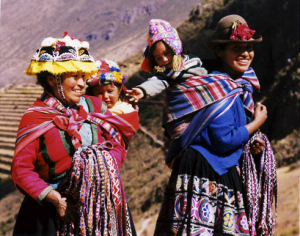 This might seem a little left-of-centre for CB.com subject matter, but hang in there, this does have some pretty important conservation implications.
This might seem a little left-of-centre for CB.com subject matter, but hang in there, this does have some pretty important conservation implications.
In our quest to be as transdisciplinary as possible, I’ve team up with a few people outside my discipline to put together a PhD modelling project that could really help us understand how human colonization shaped not only ancient ecosystems, but also our own ancient cultures.
Thanks largely to the efforts of Dr Frédérik Saltré here in the Global Ecology Laboratory, at Flinders University, and in collaboration with Dr Bastien Llamas (Australian Centre for Ancient DNA), Joshua Birchall (Museu Paraense Emílio Goeldi, Brazil), and Lars Fehren-Schmitz (University of California at Santa Cruz, USA), I think the student could break down a few disciplinary boundaries here and provide real insights into the causes and consequences of human expansion into novel environments.
Interested? See below for more details?
Languages are ‘documents of history’ and historical linguists have developed comparative methods to infer patterns of human prehistory and cultural evolution. The Americas present a more substantive diversity of indigenous language stock than any other continent; however, whether such a diversity arose from initial human migration pathways across the continent is still unknown, because the primary proxy used (i.e., archaeological evidence) to study modern human migration is both too incomplete and biased to inform any regional inference of colonization trajectories.
This project aims to quantify the impact of initial migration by humans in the Americas on the origin and the evolution of indigenous human language. More specifically, we will first develop models to estimate the regional colonization patterns of the first Homo sapiens based on time series of archaeological evidence across the Americas. Then, we will cross-validate these inferred patterns with regional maps of genetic information (i.e., human mitochondrial DNA sequences) to calculate initial human routes of migration in the Americas. We will evaluate the regional correlation between these human migration pathways and maps of language diversity to quantify the relative effect of initial human colonization on the evolution and diversification of human language. This project is unique and novel because never before have quantitative methods of spatial human ecology been combined with linguistic histories to elucidate heretofore only hypothesised patterns.
We have two specific goals: (1) Provide robust and reliable regional inference of initial colonization trajectories in the Americas by using new, cutting-edge statistical techniques that integrate both archaeological evidence and differences in mitochondrial DNA (using the so-called ‘fixation index’), and (2) Identify regions of initial human colonization that could have promoted language diversity across the Americas by quantitatively comparing our reconstructed regional colonization trajectories to a comprehensive dataset describing regional language diversity.
Main outcome: we will provide an unprecedented and previously unavailable picture of how initial human migrations shaped the evolution of modern-day languages over broad scales of space and time.
This project is an international collaboration between Flinders University (Adelaide, Australia), the University of Adelaide (Australia), theMuseu Paraense Emílio Goeldi(Brazil) and University of California Santa Cruz (USA). The successful candidate will be based at the Global Ecology Lab (Flinders University, Adelaide, Australia) and work under the main supervision of Prof Corey Bradshaw and Drs Frédérik Saltré, Bastien Llamas (Australian Centre for Ancient DNA, University of Adelaide), Joshua Birchall (Museu Paraense Emílio Goeldi, Brazil), and Lars Fehren-Schmitz (UCSC).
The Australian Government opened international funding opportunities for non-Australian students who want to do a full-time doctorate degree in Australia, called Endeavour Leadership Program. The recipient will receive for up to 4 years (i) a stipend of AU$3000/month, (ii) a travel allowance of up to AU$3000, (iii) an establishment allowance of between AU$2000 and AU$4000, (iv) a health insurance for the full category duration and (v) a travel insurance.
We are seeking a highly motivated student to pursue a PhD at Flinders University focusing on modelling regional pattern of initial Homo sapiens colonisation and its consequences on the evolution and diversification of modern human language. The candidate should ideally already have a Masters degree in (palaeo)ecology and evolution and some experience and/or demonstrated competency in modelling. Applicants should also have good quantitative skills, and a strong interest in palaeoecology and species distribution modelling. Experience with statistical analyses in R or Matlab are expected and programming skills are desirable, but not necessary. Strong writing skills, the ability to communicate effectively, and the will to work in a team are also essential.

